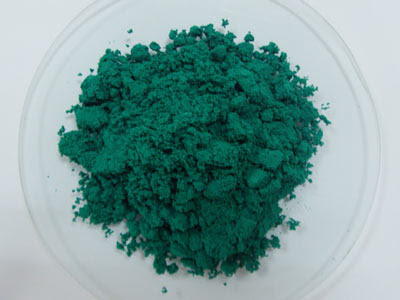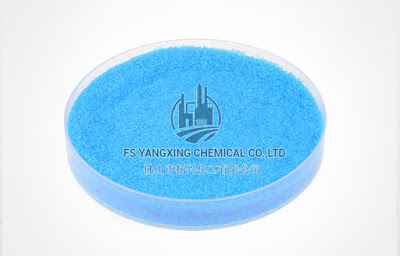Application of copper sulphate on plants
Copper
sulphate can be utilized as a manure or fungicide. It is regularly utilized by
plant specialists and business agriculturists to avoid issues with growth or
shape. The impacts of copper sulfate on plants might be negative or positive.
The copper status of the dirt, together with the recurrence of use and amount
of copper sulfate connected, will decide the impacts of copper sulfate on
plants.
Soil Enrichment
Utilized
as a part of a zone of copper-lacking soil, copper sulfate advances the dirt
and gives a fundamental supplement to developing plants. At the point when soil
is copper-insufficient, youthful plants may create chlorosis, a condition in
which leaves yellow because of absence of chlorophyll. Copper inadequacies can
likewise cause hindered or atypical development; youthful plants in
exceptionally supplement insufficient soil may basically kick the bucket.
Withering, absence of blossoms and diminished natural product collect are on
the whole likely impacts of copper-insufficient soil. Copper sulfate keeps
these issues. Test soil routinely, and apply copper sulfate as required in a
splash or compost planning.
Fungus Protection
Copper sulphate has against contagious properties, and is a key fixing in some business
fungicides for ranch and garden. These fungicides are commonly blended with
water and either lime or pop cinder, at that point showered onto the plants.
The impact of such a copper sulfate fungicide is avoidance or diminishment of
contagious contaminations that would disease be able to or devastate the plant.
On the off chance that a plant is as of now influenced by growth, copper
sulfate fungicides might be powerful in evacuating the parasite. This
utilization is viable just if the fungicide is connected not long after
parasitic disease happens.
Toxicity
At
the point when copper sulphate is connected unreasonably, soil copper levels end
up noticeably dangerous to plants. Plants developing in soil that has
excessively copper may create stained leaves because of iron chlorosis.
Regularly, leaves will end up plainly dull green, at that point turn white as
chlorophyll neglects to empower legitimate photosynthesis. Moreover, copper
poisonous quality can make harm the foundations of plants. At the point when
roots are harmed, plants are probably going to develop all the more gradually,
wither or even kick the bucket.
Effects on Fruit
In
fruiting plants, copper influences the sugar substance and kind of the natural
products delivered. The impacts of copper sulfate are most articulated in
blueberry, tomato, watermelon, onion, parsnip, lettuce, beet, carrot, cabbage,
eggplant, and celery and spinach plants. By and large, water aggregation in a
plant is lower, and subsequently its taste is sweeter, when its conductivity is
low. Abundance copper sulfate builds conductivity, lessening the sugar focus
and flavor power of the organic product. On the off chance that you need to
develop sweet natural products that are not watery, guarantee you are not
over-applying copper sulfate to your plants.
Related Keyword: Feed Grade Copper Sulphate and Agricultural Copper Sulfate




Comments
Post a Comment